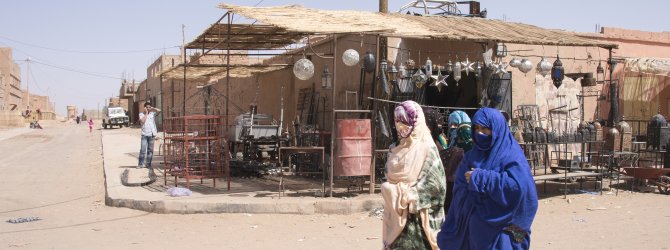-
Feminist Discourses in the WANA Region: Strategies for ...
Feminist Discourses in the WANA Region: Strategies for Success

Scholarship on the discourse of women's rights has significantly developed in the past decades, with a specific focus on how religion influences women's legal and social roles. It has been argued that “the two major challenges to all human rights and especially those of women in the twenty first century will be the forces of religious extremism and economic globalisation”.1 If this is true, it is easy to see how Islamic fundamentalism may impact women's life in Muslim states. In addition to that, one must not forget the place of personal status (or family) law in Muslim societies, which has often been described as “the last bastion” 2 of the Islamic Shari’a. These expressions of battle relate to the process of codification of laws that was started by the Ottomans in the nineteenth century and continued by the European colonial powers. This process saw the progressive abandonment of traditional Islamic jurisprudence, in favour of European legal models, with the exception of family law, which remained under the jurisdiction of Islamic courts. As a result, family law – and consequently, women – became a symbol of identity, the colonial struggle, and religious belonging. The sacred status of family law in the collective imagination always made this a delicate subject, and the idea of its reform has often been perceived as an attack to Islam and Shari’a.
Women’s rights activists have long lobbied for legal reform, demanding for specific laws that protect women from all kinds of abuses. Their strategies vary between regions and are highly contextual. They can however be grouped into two main trends: secular feminism and Islamic feminism.
Feminism in the WANA region developed during the twentieth century, at the time of colonialism. This unfortunate timing meant that colonialism and feminism would often be linked, the insinuation being that feminists in Muslim countries were cultural traitors and followers of the West. However, feminism has never been a solely Western concept, demonstrated in how Muslim women have built on it from their own religious perspectives.
Secular feminists, such as Iranian scholar Haideh Moghissi, see the concepts of feminism and Islam as incompatible; she considers Islam to be a rigid religion based on patriarchy, which, if taken literally, can never benefit women and is incapable of responding to the needs of modern society. The problem with such lines of thinking is that it could only ever reach the upper-middle class urban elite; the message was never embraced by rural and more conservative women. Additionally, conservative Islamic figures branded such movements as Western and culturally harmful. Secular feminists thus were never able to achieve positive legal reforms for women, nor eradicate patriarchy in the private sphere.
Islamic feminism became widespread in the 1990s, following the work of scholars such as Fatima Mernissi. They rejected the idea that Islam had to be abandoned in order to achieve the protection of women’s rights and modernisation. Islamist feminists lobbied for reform and change, but within the framework of Islam. Their main argument is that Islam is not a monolithic religion and its ultimate goal is the best interests of society. Islamist feminists proposed the reform of discriminatory laws, not by appealing to Western values or states’ international responsibilities, but through scholarly interpretation of the Qur’an – a process named ijthad. This strategy, combined with years of activism, was behind King Mohammed VI of Morocco’s landmark reform of the Personal Status Law (Mudawwana) in 2004. Likewise in Tunisia, the 2011 uprisings mobilised women from all backgrounds and classes, including Islamist feminists, whose message was more accessible to rural and conservative women. In 2014 a new Constitution – far more favourable to women – was passed and the government withdrew its reservations to the Convention for the Elimination of all Forms of Discrimination Against Women (CEDAW). This achievement was – at least in part – due to the involvement of Islamist feminists who, again, promoted women’s rights from within an Islamic framework.
In other countries, the discourse between Islamist feminists and conservatives lacks a constructive dialogue. In these cases, where a foundation of Islamic feminism is already strong, it is imperative that advocates identify allies within the Islamic framework and focus on issues of mutual concern. The WANA Institute’s research on women’s legal empowerment and Islam identifies five areas where women are highly vulnerable (violence, custody, paternity, inheritance and early marriage) but there is wide scope for reform based on Islamist feminist interpretations of the sacred texts. Working together with the Jordanian National Commission for Women, SiGI and the Justice Centre for Legal Aid, this approach will chart an ambitious effort to establish common ground and start a debate to strengthen the protection framework for women, not by labeling Islam the enemy, but in fact women’s greatest ally.
1 Hilary Charlesworth & Christine Chinkin, The Boundaries of International Law: The Feminist Analysis (Manchester University Press 2000).
2 Lynn Welchman, Women and Muslim Family Laws in Arab States 11 (Amsterdam University Press 2007).

